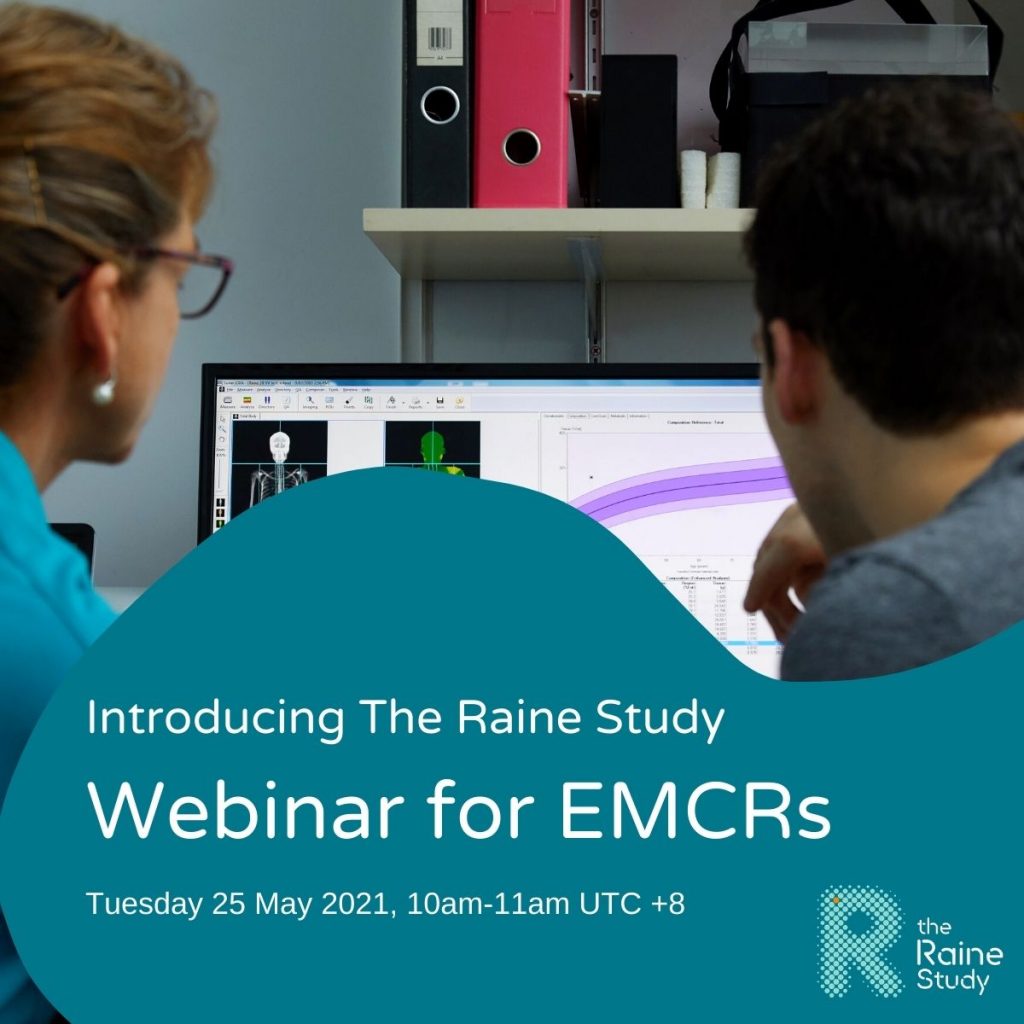Learn more about the Raine Study generally:
About The Raine Study
Established in Perth in 1989 with funding from the Raine Medical Research Foundation, the Raine Study was the first of its kind to track participants from before they were born, to determine the role that early life events (from the womb onwards) would have on later life.
A total of 2,900 pregnant women were recruited by the Raine Study between 1989 and 1991 (Gen1), and 2,868 live births were entered into the cohort (Gen2). These children, their parents, grandparents (Gen0) and now their own children (Gen3) form a unique multi-generational study, which has been helping researchers and policy makers better understand the causes of human health and well-being for more than 30 years.
In the case of the Raine Study, data has been collected from the same nearly 2,900 participants at regular intervals for over 30 years, since before they were born through to adulthood – at 1, 2, 3, 5, 8, 10, 14, 17, 18, 20, 22, 27 and 28 years of age.
More than 30,000 pieces of data and over 30 million pieces of genetic information has been collected on each of our Gen2 participants, creating a very powerful pool of data which sheds light on the longitudinal effects of environmental as well as genetic factors. Find out more at the Available Data page of our website.

